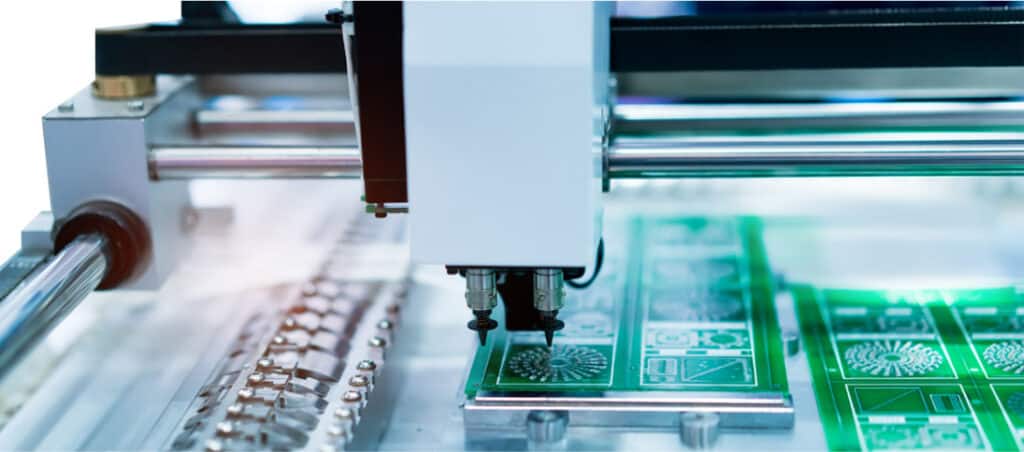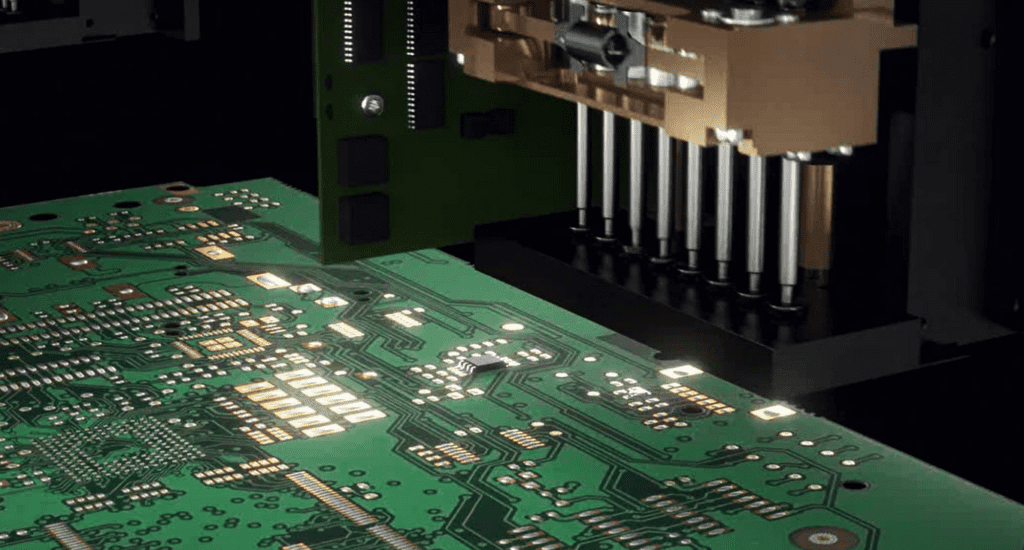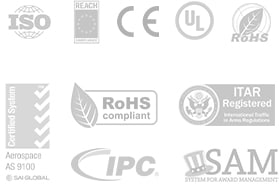Electronic weighing scales have become an essential tool for many industries, including food, pharmaceuticals, and manufacturing. These scales are used to weigh various products accurately, making them a critical component of quality control and inventory management. As the demand for electronic weighing scales continues to grow, so does the number of manufacturers in the market.
Manufacturers of electronic weighing scales offer a range of products that cater to specific industries and applications. They use advanced technology to produce scales that are accurate, efficient, and reliable. These scales come in different sizes, capacities, and designs to meet the diverse needs of customers. With the increasing demand for electronic weighing scales, manufacturers are continually improving their products to stay ahead of the competition and meet the changing needs of their customers.

Overview of Electronic Weighing Scale Industry
The electronic weighing scale industry is a rapidly growing sector, driven by the increasing demand for accurate and efficient weighing systems in various industries. Electronic weighing scales have replaced traditional mechanical scales due to their precision, durability, and user-friendly features.
The market is highly competitive, with numerous players offering a wide range of products to cater to diverse customer needs. Some of the major players in the electronic weighing scale industry include Avery Weigh-Tronix, Mettler-Toledo, Adam Equipment, and Ohaus Corporation.
The industry is segmented based on the type of weighing scale, including bench scales, floor scales, counting scales, and precision scales. Each segment has its unique features and applications, making it essential for manufacturers to design and produce products that meet specific customer requirements.
The industry’s growth is driven by various factors, including the increasing demand for electronic weighing scales in the food and beverage industry, healthcare, pharmaceuticals, and logistics. The growing trend towards automation and digitalization in various industries is also expected to drive the demand for electronic weighing scales in the coming years.
In conclusion, the electronic weighing scale industry is a dynamic and rapidly growing sector, driven by technological advancements and increasing demand from various industries. Manufacturers must continue to innovate and offer products that meet specific customer needs to remain competitive in the market.
Leading Electronic Weighing Scale Manufacturers
When it comes to electronic weighing scale manufacturers, there are several companies that stand out for their quality products and innovative technology. Here are three of the leading electronic weighing scale manufacturers:
Company A
Company A has been in the business of manufacturing electronic weighing scales for over 50 years. They are known for their high-quality products that are accurate, reliable, and durable. Their scales are used in a variety of industries, including healthcare, retail, and food service.
One of the key features of Company A’s electronic weighing scales is their advanced technology. They use cutting-edge sensors and software to ensure accurate and precise measurements. Additionally, their scales are designed to be user-friendly and easy to operate, making them a popular choice among businesses and consumers alike.
Company B
Company B is a newer player in the electronic weighing scale market, but they have quickly made a name for themselves with their innovative products and customer-focused approach. They specialize in creating customized weighing solutions for businesses of all sizes, from small startups to large corporations.
One of the unique features of Company B’s electronic weighing scales is their modular design. This allows businesses to easily add or remove components as their needs change, making their scales highly adaptable and cost-effective. Additionally, Company B offers excellent customer service and support, ensuring that their clients are satisfied with their products and services.
Company C
Company C is a global leader in electronic weighing scale manufacturing, with a presence in over 100 countries worldwide. They are known for their wide range of products, which includes everything from small kitchen scales to heavy-duty industrial scales.
One of the key advantages of Company C’s electronic weighing scales is their precision and accuracy. They use advanced sensors and algorithms to ensure that their scales provide the most accurate measurements possible. Additionally, their scales are designed to be durable and long-lasting, making them a popular choice among businesses that require reliable weighing solutions.
In conclusion, these three companies are among the leading electronic weighing scale manufacturers in the world. Each of them has their own unique strengths and advantages, making them a good choice for businesses of all types and sizes.
Manufacturing Process of Electronic Weighing Scales

Electronic weighing scales are widely used in various industries, including food, pharmaceuticals, and logistics. The manufacturing process of electronic weighing scales involves several steps, including:
1. Design and Prototyping
The first step in the manufacturing process is designing the electronic weighing scale. The design includes the selection of materials, components, and circuitry. Once the design is finalized, a prototype is developed to test the functionality and accuracy of the scale.
2. Circuit Board Assembly
The next step is the assembly of the circuit board, which includes the placement of electronic components onto the board. The circuit board is then tested to ensure that all components are functioning correctly.
3. Housing and Enclosure
The housing and enclosure of the electronic weighing scale are made of durable materials such as plastic or metal. The housing is designed to protect the internal components from dust, moisture, and other environmental factors.
4. Calibration and Testing
After the assembly of the electronic weighing scale, it is calibrated and tested to ensure that it meets the required accuracy standards. The scale is tested with different weights to ensure that it provides accurate readings.
5. Packaging and Shipping
Once the electronic weighing scale passes the calibration and testing process, it is packaged and shipped to the customer. The packaging includes the necessary user manuals, cables, and accessories.
In conclusion, the manufacturing process of electronic weighing scales is a complex process that involves several steps to ensure that the final product meets the required accuracy standards. Manufacturers must pay attention to the design, assembly, calibration, and testing of the scale to ensure that it functions correctly and provides accurate readings.
Quality Control Measures
Quality control is a crucial aspect of the manufacturing process for electronic weighing scales. The accuracy and reliability of the measurements provided by these scales are essential, and manufacturers must ensure that their products meet the highest standards. Here are some of the quality control measures that electronic weighing scale manufacturers use:
Calibration
Calibration is the process of adjusting the scale to ensure that it provides accurate measurements. Manufacturers use highly precise calibration equipment to calibrate each scale before it leaves the factory. This process involves testing the scale against known weights and adjusting it until it provides accurate readings.
Testing
Manufacturers subject their scales to rigorous testing to ensure that they meet industry standards. They test the scales for accuracy, reliability, and durability. Some of the tests that manufacturers perform include:
- Load testing: This involves subjecting the scale to its maximum weight capacity to ensure that it can handle heavy loads without failing.
- Drop testing: This involves dropping the scale from a height to test its durability.
- Temperature testing: This involves subjecting the scale to extreme temperatures to ensure that it can operate in a range of environments.
Quality Assurance
Manufacturers have quality assurance teams that monitor the manufacturing process to ensure that the scales meet the required standards. They inspect the components, assembly, and packaging to ensure that everything is up to par.
In conclusion, electronic weighing scale manufacturers take quality control seriously. They use calibration, testing, and quality assurance measures to ensure that their products meet the highest standards of accuracy, reliability, and durability.
Innovation and Technological Advancements

Electronic weighing scale manufacturers are constantly striving to improve their products by incorporating the latest technological advancements. These innovations not only improve the accuracy and precision of the scales, but also make them more user-friendly and efficient.
One of the latest technological advancements in electronic weighing scales is the use of load cells. Load cells are sensors that convert the weight of an object into an electrical signal. This signal is then processed by the scale’s electronics to provide an accurate weight reading. Load cells are much more accurate and reliable than traditional mechanical weighing systems, making them an ideal choice for high-precision applications.
Another innovation in electronic weighing scales is the use of digital displays. Digital displays provide a clear and easy-to-read weight reading, making it easier for users to quickly and accurately determine the weight of an object. Some digital displays also include additional features such as tare functions, which allow users to reset the scale to zero after placing a container on it.
Wireless connectivity is another technological advancement that has been incorporated into electronic weighing scales. With wireless connectivity, users can easily transfer weight data to other devices such as smartphones or computers. This feature is especially useful in industrial or commercial settings where weight data needs to be recorded and analyzed.
In conclusion, electronic weighing scale manufacturers are constantly innovating and incorporating new technologies to improve the accuracy, precision, and usability of their products. These advancements make electronic weighing scales an essential tool in a wide range of applications, from commercial to industrial to personal use.
Challenges Faced by Manufacturers
Electronic weighing scale manufacturers face several challenges in their operations. Some of these challenges include:
-
Competition: The market for electronic weighing scales is highly competitive, with many manufacturers vying for a share of the market. This makes it difficult for manufacturers to stand out and differentiate their products from those of their competitors.
-
Costs: The production of electronic weighing scales requires specialized equipment and materials, which can be expensive. Manufacturers must also invest in research and development to improve their products and keep up with changing customer needs and preferences.
-
Regulations: Electronic weighing scales are subject to various regulations and standards, which can vary by region and country. Manufacturers must ensure that their products meet these requirements, which can be time-consuming and costly.
-
Maintenance and Repair: Electronic weighing scales require regular maintenance and occasional repair to ensure accurate readings and reliable performance. Manufacturers must provide support and services to their customers to address these needs.
-
Counterfeit Products: The market for electronic weighing scales is also plagued by counterfeit products, which can undermine consumer confidence in legitimate products. Manufacturers must take steps to protect their intellectual property and ensure that their products are not counterfeited.
Despite these challenges, electronic weighing scale manufacturers continue to innovate and improve their products to meet the needs of their customers.
Future Trends in Electronic Weighing Scale Manufacturing

Electronic weighing scales have become an essential tool in various industries, including retail, healthcare, and manufacturing. As technology advances, the future of electronic weighing scale manufacturing looks promising. Here are some of the future trends in electronic weighing scale manufacturing:
-
Wireless Connectivity: Future electronic weighing scales will have wireless connectivity, enabling them to connect to other devices such as smartphones and computers. This feature will allow users to track and analyze their weight data with ease.
-
Smart Features: Electronic weighing scales will have smart features such as voice recognition, facial recognition, and artificial intelligence. These features will enable users to personalize their weighing experience and provide more accurate measurements.
-
Eco-Friendly Materials: Electronic weighing scale manufacturers are increasingly using eco-friendly materials in their products. This trend is driven by the growing concern for the environment and the need to reduce waste.
-
Increased Accuracy: Electronic weighing scales will become more accurate, with some models having a precision of up to 0.001 grams. This feature is essential in industries such as pharmaceuticals, where accuracy is critical.
-
Compact Design: Future electronic weighing scales will have a compact design, making them more portable and easy to use. This feature is especially useful in industries such as agriculture, where farmers need to weigh their produce in the field.
In conclusion, the future of electronic weighing scale manufacturing looks promising, with manufacturers incorporating advanced technology and eco-friendly materials in their products. These trends will ultimately lead to more accurate, efficient, and personalized weighing experiences for users.

